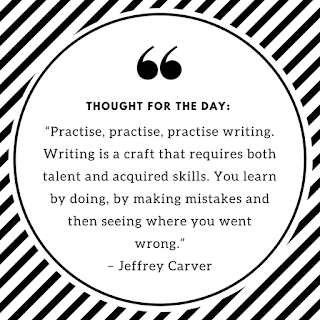Collaboration, or co-writing, is cool at the moment. Four of our own wrote the collaborative novel The Greenfield Legacy a few years back. A group of prominent indie authors recently took an overnight train ride and created a novel together.
The big issue with collaboration, when it comes to self-published authors, has always been the accounting. Somebody has receive the royalties and divide them up each month (potentially the rest of their lives). This needs to be done for each collaboration. Podcaster Joanna Penn has often lamented that there isn’t a platform that makes this process easier. Well, now there is.
A new service by the company BundleRabbit has just launched a service that will distribute a co-written book to all the major retailers, and pay each individual contributing author, for a small percentage. Payment is handled through PayPal. They take care of currency conversions.
Essentially, this makes them like Draft2Digital, but for multi-author projects. This could be a game-changer. I suspect we will see a lot more co-written books in the near future. As with any third-party distributor, you lose a portion of control. The book is uploaded to the retailers by BundleRabbit, so you won’t see the sales information on your KDP dashboard. Instead, sales information is provided by BundleRabbit. However, given the convenience of letting them take care of all the royalties, it sounds like a good compromise to me.
Collaborating on a project can bring some advantages. By accessing each other's reader base, you can expect awareness, and possibly build some new fans. It also brings it own set of challenges, as is inevitable when more than one human being is involved in something.
But BundleRabbit have been around for a while, so what else do they do? In addition to this new service, they make it easy for authors to put together bundles of books, in the same way that the popular sites like Humble Bundle and StoryBundle do. Books can be combined on a subject matter, or other grouping. These bundles will be distributed to the retailers, but customers can also buy direct from BundleRabbit. That’s where it gets interesting. Customers can choose what they want to pay for these bundles (there is usually a minimum price specified). Unlike other bundling sites, anyone can be a curator and make their own bundle (out of books that are on BundleRabbit). For that reason, it may be worthwhile for authors to submit their books. You never know when somebody might include it in a bundle, which will give you sales. (The author has to approve the inclusion of their book.) The curator receives 5% of sales, plus the author share if any of their own books are included. This provides fundraising opportunities. Imagine a bundle of books by CWD authors. Something along the lines of the Super Series Spotlight that our own Jeanette O’Hagan was recently involved in, except that all the books can be purchased in one go, for a discounted price.
My Dream
So all of that said, I have a dream. It’s not something for now, maybe in a few year’s time, after I’ve built a little more experience writing and publishing my solo works.
I imagine getting a group of Christian spec-fic writers together in a video conference, to set up a virtual writer’s room like they use for American TV shows. Together, we’d plot out a season-wide arc for a series. Then, each writer would be assigned an ‘episode’ and write it as a novella. These could be brought together and published as a box set using BundleRabbit.
Just think, a full length book could be produced in the time it takes to write just one novella. The contributing authors could all chip in for the cost of editing, or maybe even have the editor take a percentage of royalties. The possibilities are endless.
So what about you?Have you ever though about working on a collaborative project?
Adam David Collings is an author of speculative fiction. He lives in Tasmania, Australia with his wife and two children. Adam draws inspiration for his stories from his over-active imagination, his life experiences and his faith.
Adam is a great lover of stories, enjoying them in books, movies, scripted TV and computer games. Adam discusses these on his own youTube show – Stories with Adam Collings.
Find him at adamdavidcollings.com or sign up to his email list for a free short story.



















